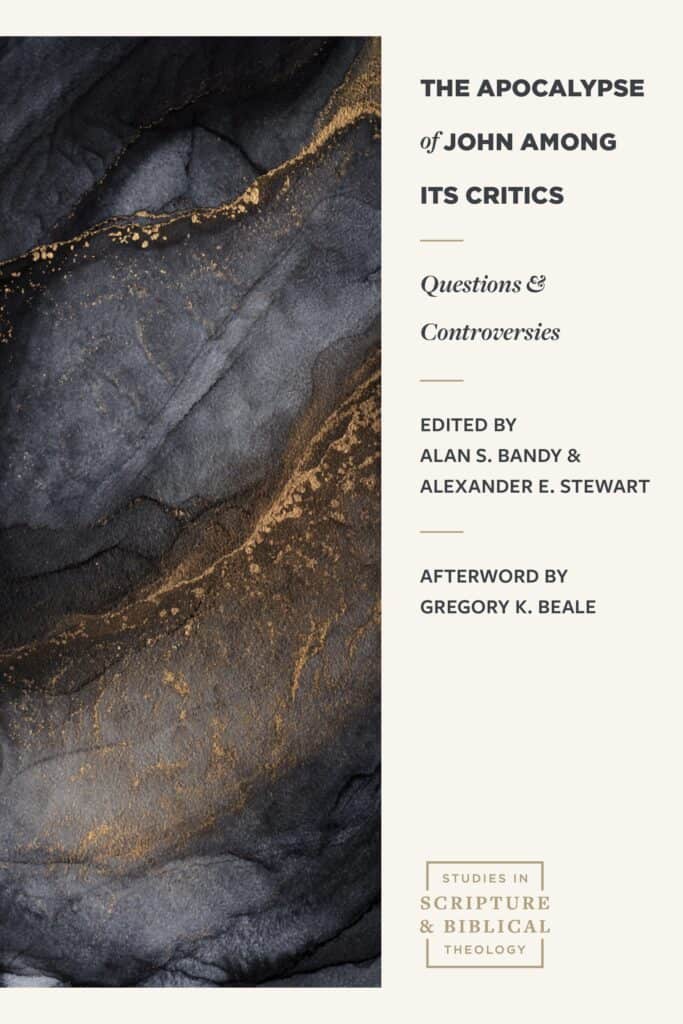
In The Apocalypse of John among Its Critics: Questions and Controversies, Alexander E. Stewart and Alan S. Brady wrestle honestly with the difficult-to-comprehend book of Revelation. In this interview, we meet both authors and learn more about the topics they address in their edited volume.
Lexham Press: Share something about yourself that only your friends would know.
Alexander E. Stewart: I enjoy renovating old houses although this doesn’t always translate into speedy repairs of our current home (sorry, love).
Alan S. Bandy: I am an avid board game player. I love euro games, miniatures, co-operative, RPG, dice chucking, deck building, campaign, legacy games—the nerdier, the better.
LP: What is the inspiration behind The Apocalypse of John among Its Critics?
Stewart: The book responds to the trend in modern scholarship (influenced by critical theory) to ethically problematize the biblical text from a supposed moral standard external to and above Scripture. My goal was to bring together the best and brightest confessional scholars who work on Revelation to give a textual, historical, and Christian response to these ethical critiques.
Bandy: This book attempts to answer several negative perspectives about John and his Apocalypse commonly raised by critical biblical scholars. It does so by offering scholarly counters to these perspectives from critical evangelical biblical scholars. The essays argue for a more positive perspective on John and his Apocalypse in a way that is academically rigorous and theologically faithful.
LP: What are some of the topics addressed in the book?
Bandy: Each contributing author provides serious, scholarly, and insightful arguments regarding Revelation’s place in the canon, its genre, John’s seemingly harsh, threatening, chauvinistic, and violent language.
LP: Can you give an example of one of the chapters?
Stewart: My chapter (“John, Threats, and Fear Appeals”) considers the way that John’s motivational effort utilizes harsh language and vivid descriptions of violence. Such rhetoric seems to be unkind, intolerant, and mean to those who might disagree or hold a different view. If, when, and how is it ethically appropriate to motivate others through threats and fear? The perceived surplus of violence in Revelation 1) leads many Christians to an embarrassed avoidance of Revelation and 2) provides space for critics of Christianity to ignore historical and canonical context in order to reject Revelation for its moral deficiencies. This chapter and the volume as a whole will respond to these tendencies among both Christian and non-Christian readers.
Lexham Press: Why do you write?
Stewart: I write because I view it to be part of my vocational calling to serve God and his people. I choose writing projects based on my interests and what I see as topics needing a response. Often I try to find answers to my questions under the assumption that others share the same or similar questions. Writing is very hard work. There is nothing magical and mystical about it, and it requires hour after hour of focused and dedicated effort. If I didn’t see it as part of faithfulness in my vocational calling and the meeting of real needs, it would be difficult to sustain the effort needed to bring projects to completion after the initial enthusiasm wears off and the real work begins.
Bandy: I write for a number of reasons. First, it makes me a better thinker and teacher. It enables me to research a subject thoroughly in order to have clarity in my understanding and offer my own contribution to the subject. I also write to stay current in my discipline. The amount of scholarship published annually means one can fall behind easily, but also writing keeps me engaged and fresh. The third reason is because I hope to say something that will help others. Hopefully, I could make a worthwhile impact on others.







